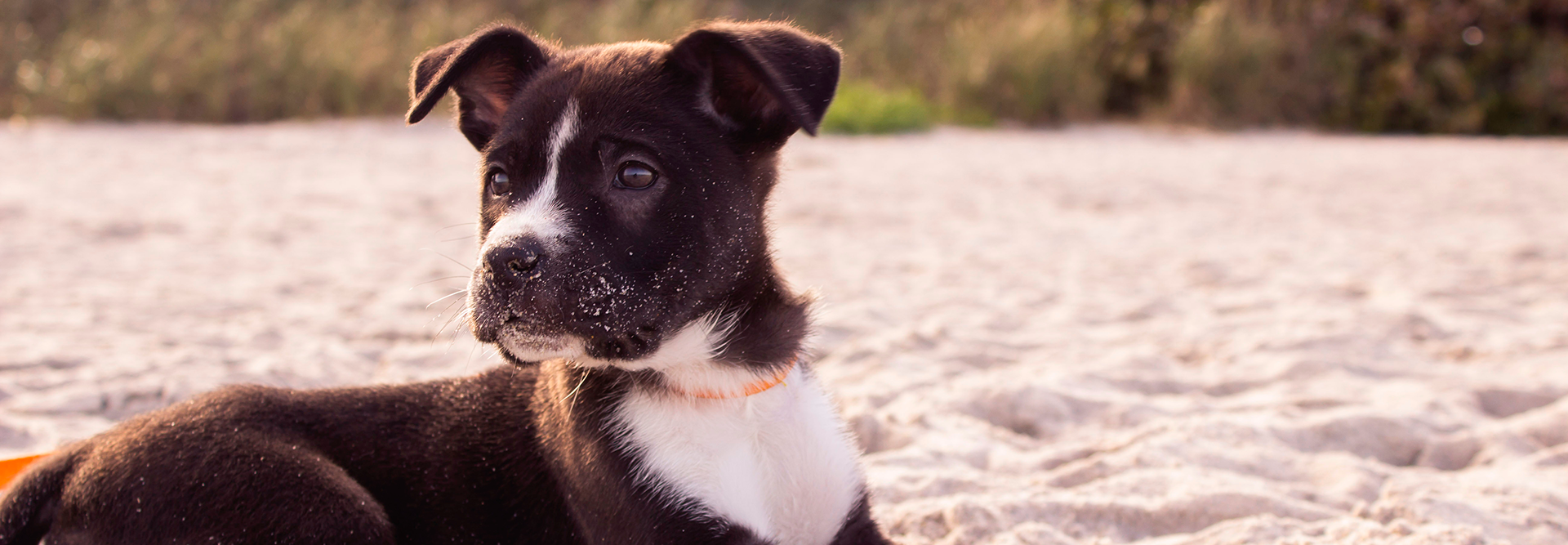
What is the best thing about puppies? Some owners would say their insatiable playfulness. Others would mention their unconditional love. And other owners would bring up a million other common puppy traits that make them irresistible for us. In truth, all of these answers are right! Puppies are wonderful little furballs and when it comes […]
What is the best thing about puppies? Some owners would say their insatiable playfulness. Others would mention their unconditional love. And other owners would bring up a million other common puppy traits that make them irresistible for us. In truth, all of these answers are right! Puppies are wonderful little furballs and when it comes to socialization, this continues to ring true. No matter how young or old they are, puppies have the uncanny ability to soak up any information they learn. We can’t blame them! The world is so vast and different that it’s hard not to be curious about life around them.
However, this also makes socialization a crucial part of their development. From a young age, socialization teaches puppies one important life lesson: to not be afraid. That way your fur-baby will know how to deal with strong emotions and how to get along with others (humans and animals alike!). It’s up to you to make sure your pup learns about the world around them through a careful socialization process.
Of course, socialization isn’t just getting your puppy out of the house more often. It’s also ensuring your pup has positive experiences while interacting with other dogs and people. The more pleasant your puppy’s experiences are, the more likely they’ll grow into happy, healthy adult dogs. Here are a few tips that can help you socialize your puppy!
Despite popular belief, socialization is a continuous process. It starts the moment your puppy is born and continues into its puppyhood years. According to PetMD, puppies can start socializing as soon as they turn 7 to 8 weeks old, but the most important period is the 12- to 16-week mark. During this specific age period, you need to make sure that your fur-baby is experiencing different situations, sights, sounds, and other new things. Even after they pass the 16-week mark, it’s highly recommended to continue introducing new experiences to your pooch so that they grow into well-mannered dogs.
Since socialization is a process, it needs to be planned out and done gradually. Many owners think it’s alright to force their puppies into uncomfortable situations but doing this can cause them anxiety and fear. Always remember that the goal of socialization is to eliminate fear around others. Your puppy needs to be comfortable before they’re thrown into social situations. Some of the things your puppy should be exposed to includes:
This is a small list compared to the numerous experiences your puppy will encounter. Don’t try to use it as a checklist. Instead, try to expose your puppy to a few things from the list at a gradual pace. Exposing your puppy to a variety of experiences can reduce their likelihood of fear or anxiety later on.
Before you socialize with your puppy, don’t forget to visit your vet. Puppies need to be vaccinated to protect them from harmful illnesses. Depending on your vet’s advice, your puppy may receive their vaccinations in a span of weeks. Wait until your vet tells you that your puppy is immunized. Until then, you can safely socialize your puppy in the following ways:
When it comes to puppy socialization, your little furball should never feel overwhelmed, anxious or scared. Before you start the process, help your pup be relaxed by talking in a soft, soothing voice. Keep them happy by cradling them in your arms. Let them eat some yummy treats. Be sure to supervise them at all times and keep them away from places you don’t want them to explore. Never push or force your puppy into a situation. If you follow these tips, your puppy won’t feel scared during socialization.
But how do you know if your puppy wants to socialize? Well, take a look at your puppy. Watch their behavior. If your puppy approaches a guest or another dog with curiosity, they’re likely interested in engaging with them. If you notice your puppy is wary or aloof, then they may not be ready for it yet. Keep them at a distance. Let them explore the world and their surroundings on their own. Remember that your puppy doesn’t need to interact with everything and everyone.
Your puppy may display overexcited behavior. This may mean your fur-baby isn’t confident or is scared of their current situation. You can help your puppy by giving them treats, calming them down, and keeping the interactions short. Make sure to move your puppy immediately if they express fear or anxiety. Forcing your puppy to stay in an uncomfortable situation can cause them to fear others in the long run.
Socialization is the best way to introduce your puppy to the world. Within a span of a few weeks, it teaches them that the world is a relatively safe place. It also shows them that you understand them, even if you don’t always get some of their quirks! By the time your puppy is fully socialized, they will know they have you as a wonderful partner who will always be there for them. Just remember to play it safe and don’t rush anything. Both you and your puppy can have fun together while socializing!